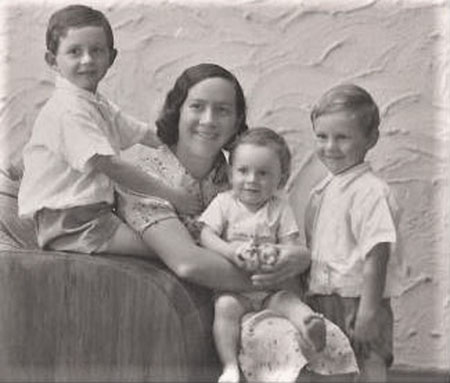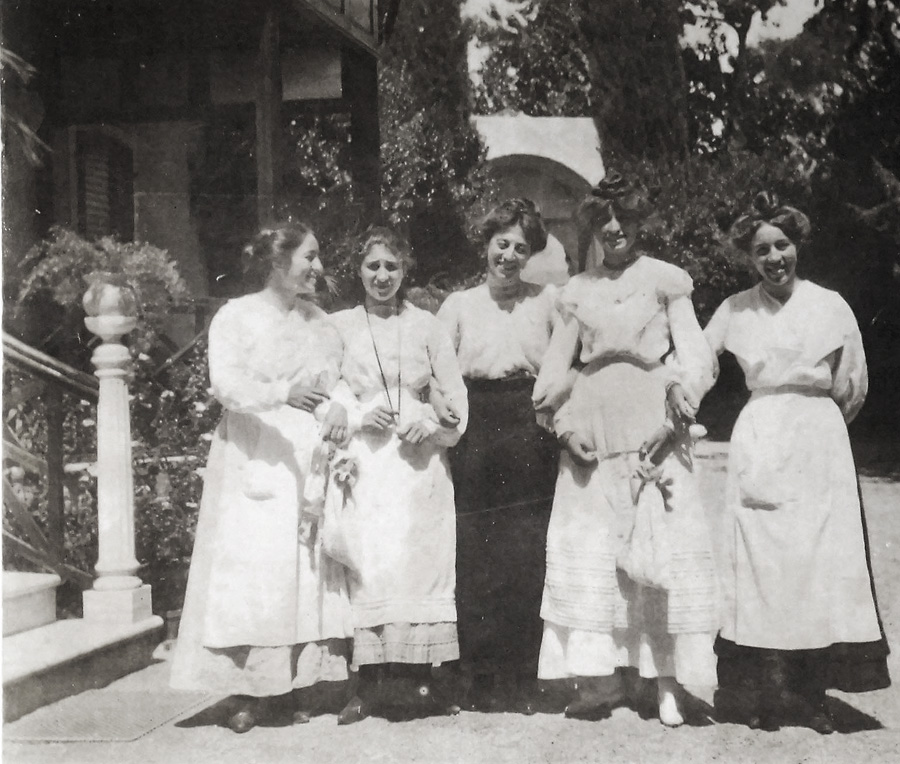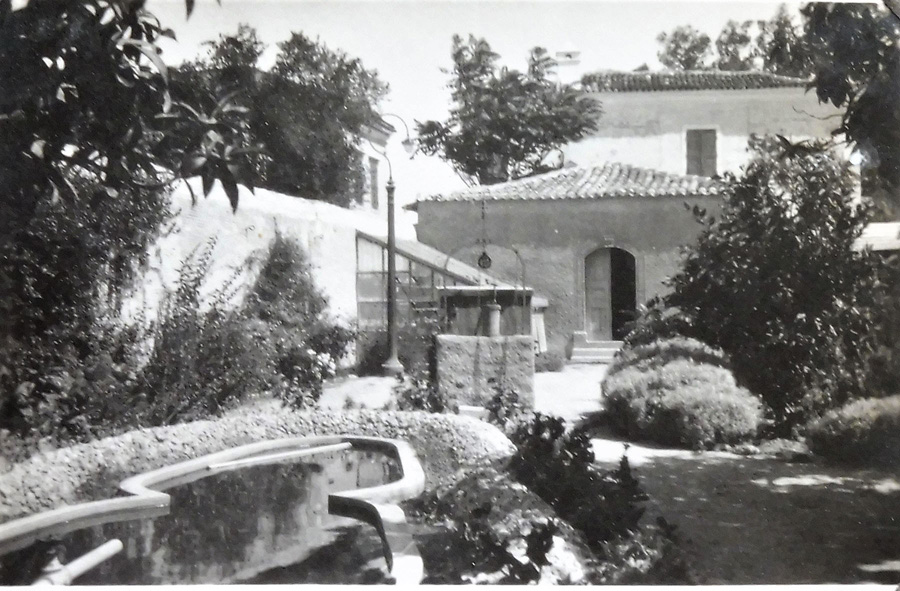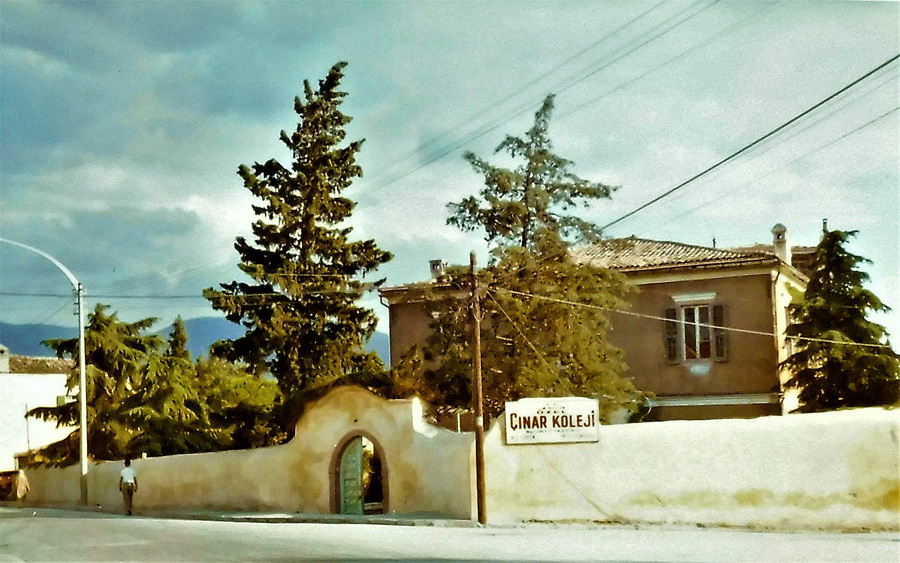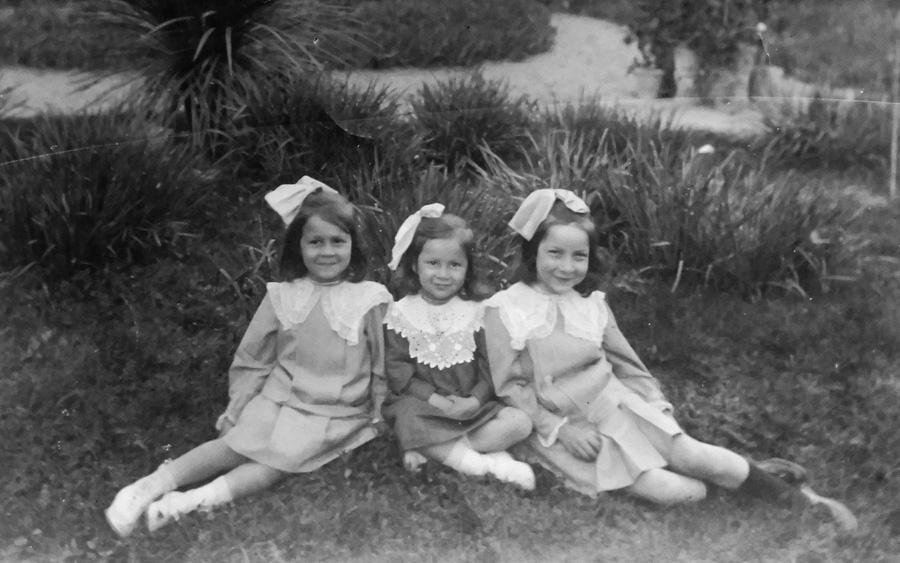
The Contributors
Turrell Family of Smyrna
by Susan O’Carroll
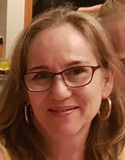
Frederick Wallace Turrell, known as ‘Frank’ was born in Cheltenham, Gloucestershire, England in 1826 and was educated in England. During the Crimean war he was sent to the Ottoman Empire as an interpreter (French/English) on Baron Raglan’s staff. The conditions were very poor and he contracted tuberculosis but was fortunate to recover. He attributed his recovery to the climate and whiskey. After the war he established a private school for boys in 1853, called the ‘English College’, teaching English, Greek and Latin. He also wrote a grammar text book for use in the school, which was printed in Smyrna. Frederick was one of 5 children. His 3 brothers were all teachers like himself, one in England, one in New Zealand and one in Australia. Frederick was by all accounts an intelligent, witty, cheerful and easy going man but one for whom money didn’t mean very much. He didn’t seem to make much in his lifetime, nor did he leave much when he passed away.
He married Helen Séraphine Perkins in Smyrna in 1865 when he was 41 years old and they had 3 children; Wallace Henry Turrell born 1866, Edith Annie Turrell born 1867 and Alice Maud Turrell born 1871.
In 1871, Frederick was elected to a sub-committee of the St Mary Magdalene Anglican Church in Bornova, Smyrna, which was tasked with obtaining land for an Anglican cemetery. This project was successful with land being donated by one of the Whittalls, (possibly Frederick George Whittall B. 1849) who was also on the committee and the cemetery was established.
Frederick Turrell’s wife passed away in 1876 when she was 33 years old and he was left to raise 3 young children aged between 5 and 10. A year or two later, Frederick was married again, in his early fifties, to his late wife's younger sister, Frances Honorine Perkins and they had 2 children: Reginald Edmund Turrell was born in 1879 and Frederick Arthur Turrell was born in 1880. This precluded the family ever returning to England where marrying a wife’s sister was unlawful. Their younger son passed away in 1885 at the age of 4 years.
Reginald Turrell was a mischievous child, a trait inherited by his grandson David Alan O’Carroll! He enjoyed telling his daughters the tale of when he was a boy and would ride his bicycle out of town and intercept camel drivers bringing goods to Smyrna for trade. He would stand in the road and insult them, telling them they were sons of donkeys (a huge insult in Turkey). The camel driver would then beat his beast to chase down this awful boy. Reginald would race ahead of him, stop and repeat the tirade. This sequence would be repeated several times with the camel driver becoming more and more enraged and frustrated.
Frederick Wallace Turrell passed away in Bornova in 1894, at the age of 69. His surviving children were aged between 16 and 28 years. His widow, his son and daughters from his first marriage and his son Reginald from his second marriage, continued living in the family house, which had also been a school, in Bornova. His wife’s brother Charles ‘Albert’ Perkins lived with them from time to time also.
Frederick’s son Wallace from his first marriage was a lawyer in Smyrna by this time. His 2 daughters remained unmarried and helped run the household. Reginald Edmund Turrell joined the bank in Smyrna, around 1896, becoming a sub-manager. While working for the bank in Smyrna, he was required to go into the interior to see clients from time to time. On such trips he would stay with local people and eat with them in the evenings. On one trip, he travelled with a French colleague who had never done this before. Reginald advised him to follow his example and to help himself from the communal bowls. His colleague was reluctant to do this however, and their Turkish hosts served him full plates of each of the numerous dishes, including chicken, pilaf, lamb and sweets. Reginald assured him that if he didn’t eat everything on the plates, their hosts would be deeply offended. Eventually the poor man ran from the room declaring he was being killed by food.
In 1906, when he was 25, Reginald married Helen Ruth Whittall, daughter of Herbert ‘Octavius’ Whittall in Bornova. Helen and her infant daughter both died in childbirth less than a year later and were buried in the Bornova Anglican cemetery. Three years later in 1909, Reginald married Helen’s cousin Jessy Maud Whittall, daughter of Edward Whittall and they had 3 children: Nancy Ruth Turrell born in 1910, Ray Frances Turrell born in 1911 and Helen Edith Turrell born in 1912. The children were raised in the same house that had incorporated their grandfather’s school and were taught English grammar using the book that their grandfather Frederick had written. They were taught French grammar, French poetry and songs by their grandmother, Frances. The household by this time was made up of Frances Turrell née Perkins, her stepson/nephew Wallace Henry Turrell, her step daughters/nieces Edith and Alice Turrell, her son Reginald Turrell, his wife Jessy née Whittall and their 3 little girls as well as 5 Greek servants. Ethel and Alice had a little house in Mytilini on Lesvos where they would spend the hot summers, taking one of the servants with them on an annual rotation.
Wallace Turrell went to Egypt in 1914 but returned to Smyrna at an unknown point. In 1915, Reginald left the bank and joined up with a friend with whom he began importing Ford and General Motors vehicles to Smyrna. Within a few years they decided to separate the business and Reginald’s friend kept the Ford dealership, while Reginald retained the General Motors franchise. He acquired the services of a very good German mechanic around this time and decided to import just 2 brands: Chevrolet and Buick. Reginald had a Buick tourer, with a canvas roof that was usually left down. Family memories passed down suggest that his was the 3rd car in Bornova, the first two being imported by Harry and Edmund Giraud. Reginald would take his family for picnics outside Bornova. At that time, the only paved road was the one that his brother in law Edmund Giraud had built to drive his own family to Lidja (Çeşme), so Reginald frequently drove along dirt roads where he claimed that driving at 20 mph was quite fast enough! He imported a lot of Chevrolet trucks and some of these had their wheels modified so that they could be driven along railway lines. He later also imported and sold refrigerators in Izmir.
As a business man he would often catch the local train from Smyrna to have lunch at home in Bornova. The train station was several hundred yards from their house and the road between the two had bends in it. Reginald’s mischievous sense of humour continued into adulthood. He would tell the story of the day he left the house in good time to catch the early afternoon train back to work, and noticed a rather overweight lady behind him, obviously also bound for the station. He raised his arm to consult his watch and began jogging. As soon as he was out of her sight round a bend, he stopped and just walked. When she appeared again behind him, he resumed jogging. She began running too. As he reached the station she rushed up beside him completely out of breath only to realise that the train hadn’t even arrived yet. She was furious and accused him of enticing her to run for no reason. His response was that he was merely taking a little exercise! He was highly amused by it and enjoyed telling his family about it that evening.
Reginald Turrell encountered a young Englishman, new to Smyrna through business. The man said that his mother had warned him about Turkish women and made him promise that he would never become involved with any of them. Reginald was unable to resist and invited the young man to lunch with his family the following Sunday. Meanwhile, at home he organised his entire household of wife, sisters, daughters and servants to dress as Turks. Reginald met the young man at the railway station and on their way back to his house mentioned casually that his wife was Turkish. When they arrived the young man found the entire household conversing in Turkish and Greek with barely a word of English spoken and was served all Turkish food. He was made very welcome and Reginald translated for him all afternoon. It seems their guest was completely taken in, because the following week he was overheard telling people in Smyrna about Reginald Turrell's wife who was Turkish. He was assured that he must be mistaken! Imagine the poor man’s confusion.
Reginald was also a good sport when others derived their entertainment from him though. His daughter Ray told of a time when she and her sisters dug holes all over their vegetable garden and disguised them with leaves and twigs on top and then a little sand over that. That evening they invited their father to come and see all the work they had done in the garden. He went round the garden stepping into each hole and expressing great surprise each time, to the delight of his daughters who were convinced they had fooled him. Whenever his children amused him he would say ‘J’entend le voix de mon sang’.
In 1916, Reginald’s youngest daughter Helen came down with diptheria. Her mother Jessy was a good nurse and thankfully Helen survived. In 1917, Jessy’s father Edward Whittall passed away. Then in 1918, Reginald’s mother Frances and his sister Edith both passed away.
In 1922 right before Smyrna was practically burned to the ground by Kemal Attaturk’s troops, Reginald anticipated trouble and moved his family from their home in Bornova to their townhouse north of the port of Smyrna. They holed up there for some days, joined by various relatives. From there they were able to board a British hospital ship, the Thalia, and sail to Mytilini (Lesvos), where they lived for about a year, almost certainly in the Turrell summer house there. Reginald, Jessy, the 3 children, Jessy’s mother Mary Whittall (née Maltass) and one of her brothers as well as extended La Fontaine family members, travelled together. Wallace Turrell is thought to have gone to Greece. There is no mention of Alice Turrell in diaries and records of the ‘catastrophe’ and it’s uncertain whether she was still alive, whether she went to Mitilini or to Greece. No record of her death has been found.
The time they spent in exile was very worrying for the adults, who often privately conversed amongst themselves while the children played. The Turrell girls were about 9, 10 and 11 years old. There was no school to attend so they had the run of the island and enjoyed themselves. One day their cook asked the children to mind her baby who soon went to sleep, so they left her in the shade of a tree and went off to play. They picked her up again on their way home for supper at the end of the day. Reginald Turrell became very ill in Mitilini, most likely as the result of stress. Apparently, he couldn’t bear the weight of blankets in bed and was covered with newspapers instead. It is thought that perhaps he was suffering from shingles or some other skin disorder. Fortunately, he recovered and in 1923, when the situation in Smyrna improved, the family returned to Turkey. Reginald’s business had been destroyed. In Bornova, they found their home looted and vandalised and the bodies of their Greek servants in the well in the garden. Turkish troops had sold some of their possessions to their neighbours, who refused to part with them. Nothing was insured. And they had lost most of their photographs. A portrait of Jessy’s mother had a Turkish dagger stuck in it as a coat hook, with a dirty coat hanging from it. Helen’s youngest son Joe O’Carroll had the painting repaired in London many years later.
On his return, General Motors contacted Reginald about placing an order for cars and trucks. He wrote back to let them know that his business had been destroyed and that there was no money to pay for any cars and trucks. General Motors offered to extend him credit to allow him to re-establish his business and invited him to order whatever he needed and to pay them once the vehicles sold. This gesture allowed Reginald to become one of few family members who were able to start again. Many Whittalls and others left the country permanently, as a result of the disaster.
Jessy was deeply traumatised by the events of 1922 and having to flee and she was never the same happy person again. She died of a stroke 4 years after their return to Izmir aged just 44. Her daughters were still in their teens.
Reginald Turrell did very well once his business was re-established and enjoyed some excellent and extravagant holidays in Beirut and Alexandria, with his family. A family story tells of Reginald’s brother-in-law, Albert Perkins, going on a trip with them and when he was offered a plate of sliced ham by a waiter on a ship, he swept the lot onto his plate muttering: “troppo fino” (too thin). Despite the difficulties he had experienced, Reginald retained his sense of humour and he laughed and said: “They’ll never make a profit off you, Albert”.
In 1931, just after her 18th birthday, Reginald’s youngest daughter Helen married John Vivian (Jack) O’Carroll, a chartered accountant from London. Jack was Cambridge educated, the son of an Irish father and a French mother. He went to Turkey in 1926 as an auditor and then travelled to the Sudan with Edmund Haydn and did a stint of work there. He returned to Izmir, with a ring from Khartoum and became engaged to Helen.
Reginald became a grandfather in 1932 when Helen and Jack’s first son Terence Gordon O’Carroll was born. Reginald’s half-brother Wallace Henry Turrell died that year, in Greece and was buried there.
Reginald’s eldest daughter Nancy married Edmund Haydn in 1933 and Reginald died suddenly of a stroke the same year, aged just 54 and only 5 years after his wife Jessy had died. He died intestate and his son in law Jack O’Carroll saw to probate and that his estate was properly settled on his daughters. Jack arranged the sale of Reginald’s car dealership to a Turk in 1934. Helen had a second son, Colin Reginald O’Carroll that year and Nancy’s first child, Michael Haydn was also born in 1934. The inheritance from Reginald’s estate allowed his middle daughter Ray Turrell to travel to London in 1934 and enrol in the Byam Shaw art school. She did return to Turkey once or twice after that to deal with administrative issues. Money was left for the upkeep of family graves in Bornova, which would have long run out.
Ray settled in England, where she married Richard Bell in 1939 and had 2 sons. She lived in England for the rest of her life and passed away in January 2000. Helen and Nancy left Turkey in 1935. Helen and Jack went to the UK for 2 years, where a third son was born in 1937. They left England for Southern Rhodesia a few months later where Jack got a job as an accountant with the Rhodesian Airways. When WWII broke out, he went into uniform as paymaster with the Rhodesian Air Force. They lived in Salisbury (Harare) for 8 years before Jack was demobilised at the end of the war and the family moved to Cape Town, South Africa in late 1945. They bought a house in Fresnaye, Cape Town and Helen joined the Fresnaye Tennis Club where she became the singles champion 5 times. A 4th son was born in Cape Town in 1947 and they Helen and Jack lived in Cape Town for the remainder of their lives. Jack died in 1984 and Helen passed away in 1985. Nancy and Edmund Haydn went from Izmir to Johannesburg, South Africa and their daughter Pauline was born there in 1936. A third child was born in 1948. They too lived there for the rest of their lives.
Helen remained in contact with her cousin Edna Giraud, (daughter of her mother’s twin sister Ruth née Whittall and Edmund Haydn Giraud) all her life. Edna married her cousin Rodney Whittall in Izmir in 1936 and they had 2 children in Izmir before also migrating to Southern Rhodesia, in about 1940. Edna and Helen saw a lot of each other in Rhodesia and their children played together. A third child was born to Edna and Rodney in Salisbury (Harare) in 1941 and in 1947, they returned to Izmir and then emigrated to Canada. Today, no Turrells remain in Izmir and family have been unable to locate the Turrell house, which has probably been demolished to make way for something new.
The connection with Turkey remains however, via Whittall and Giraud relatives, and Perkins descendants as well and the bond between these interlinked families. A vital piece of family history information is derived from the privately published book: Scrap book 1809-1922 - Ray Turrell - Richard Bell 1987 (memoirs of her life in Bornova by the daughter of Reginald Turrell and Jessie Whittall, 1911-1970) - sample pages.
Submission date March 2019
There is one with all of Edward Whittall’s daughters and foster child (second from left), early 1900s. I am pretty sure Jessy Whittall (Turrell) is on the far left and Ruth Whittall (Giraud) on the far right. They were twins. The foster child is second from left. The other two are Rachel (Ray) Whittall (Tissot) and Elsie Whittall (Miller) though I’m not quite sure which is which.
Reginald Turrell’s house - back garden 1930
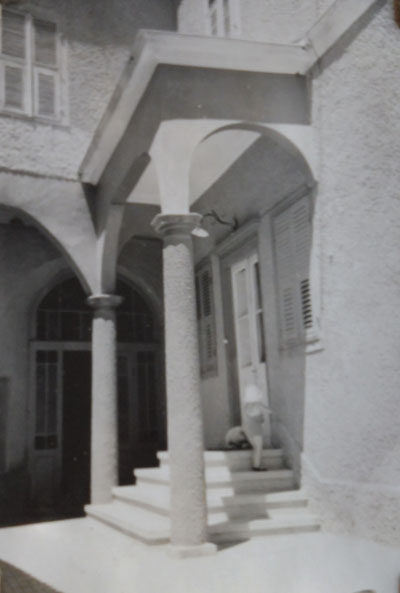
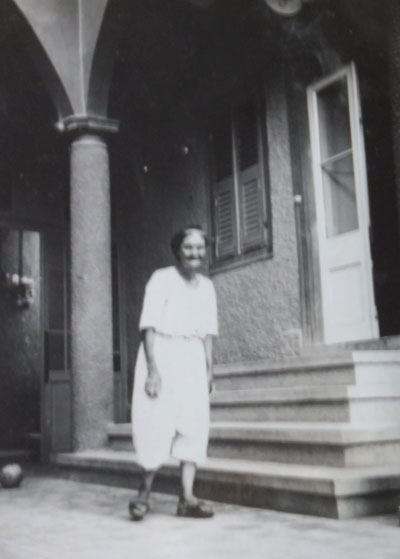
Reginald Turrell’s house, Bornova - back door - with Emma their washer woman
Turrell house, Bornova, Izmir
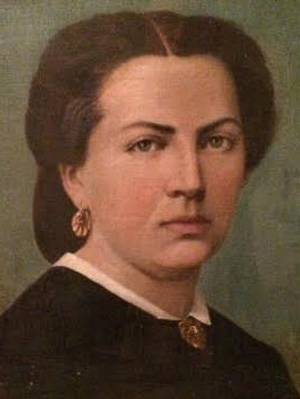
Mary (née Maltass) Whittall, the painting my uncle had repaired in London, artist unknown.
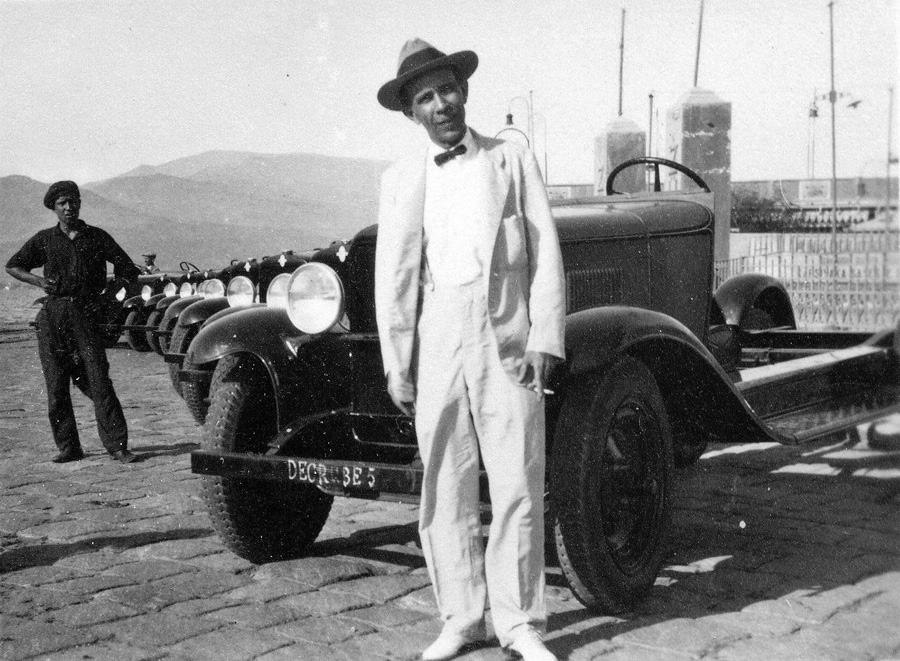
Reginald Turrell, Smyrna
From the left: Ray, Helen & Nancy Turrell, Bournebat, Smyrna, c. 1917.
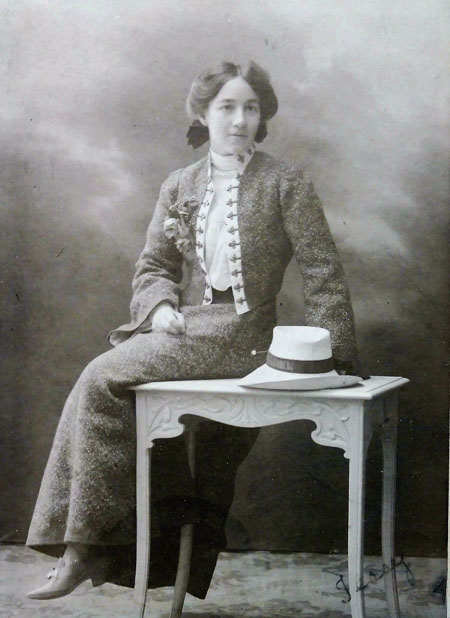
Jessy Turrell (née Whittall) aged 18.
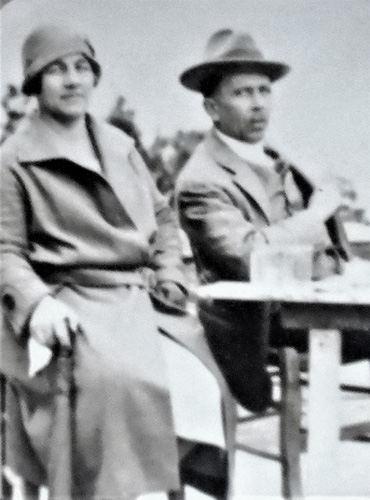
Jessy (Née Whittall) & Reginald Turrell c. 1925.
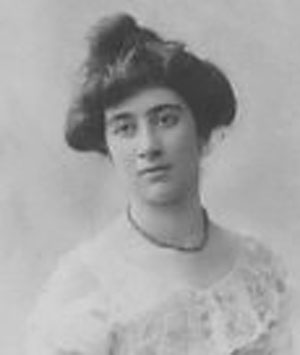
Helen Ruth Turrell née Whittall.
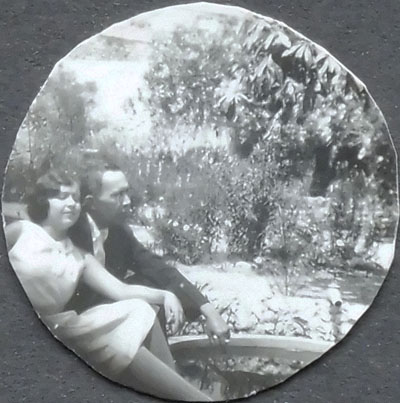
Reginald Turrell & his daughter Ray Turrell, in their garden in Bornova Izmir, c. 1928.
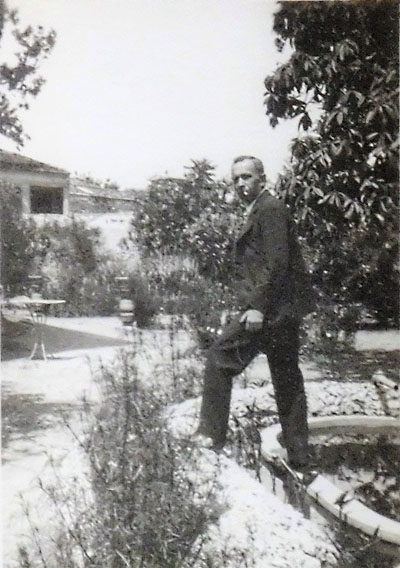
Reginald Turrell in his garden in Bournabat (Bornova) Izmir.
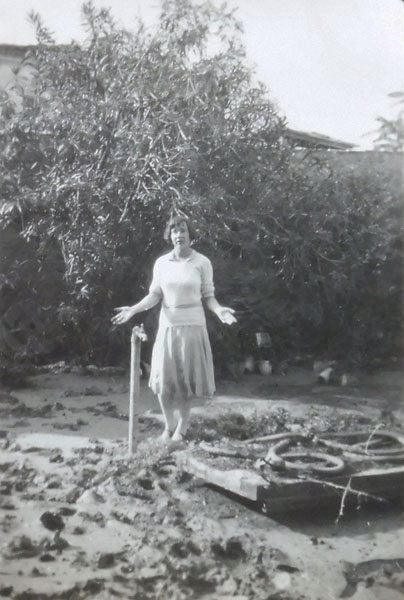
Helen Edith O’Carroll née Turrell. Izmir flood 1930.
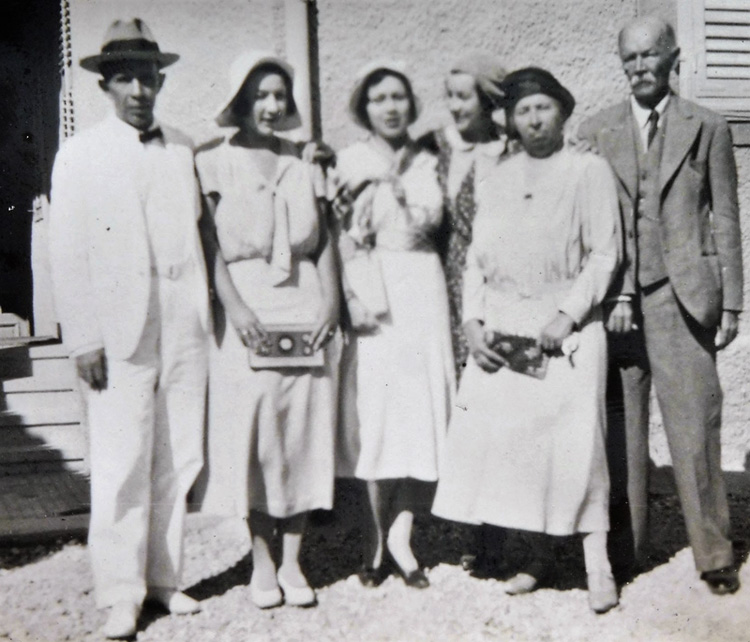
From the left: Reginald Turrell, daughters Nancy, Ray and Helen Turrell, 1931. The older couple are most likely Reginald’s half siblings, Alice and Wallace.
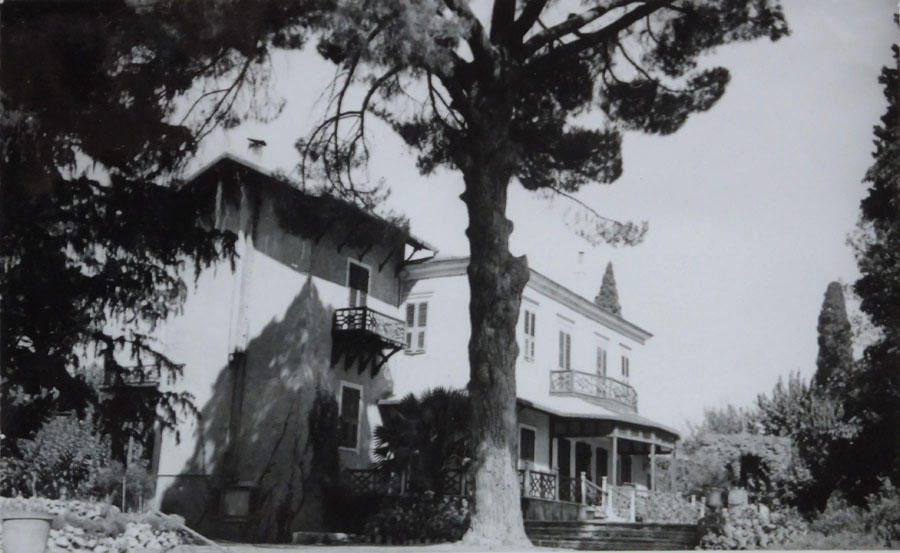
Edward Whittall’s house - view from garden in 1937.
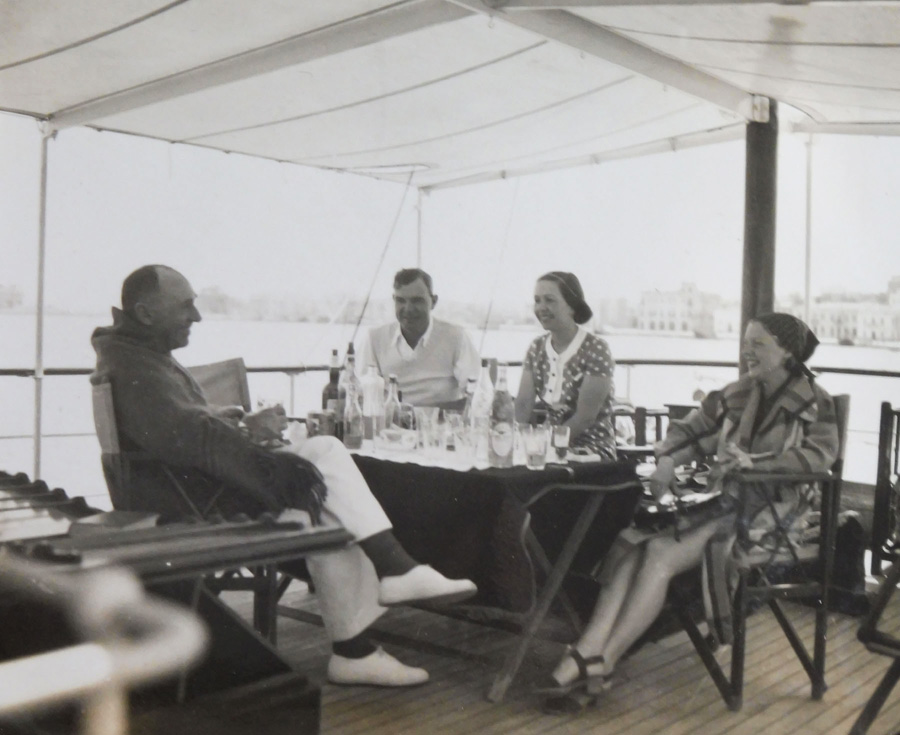
From left: Edmund Giraud, Godfrey Giraud, Ray Turrell, Gwynneth Giraud aboard the Lady May 1937.
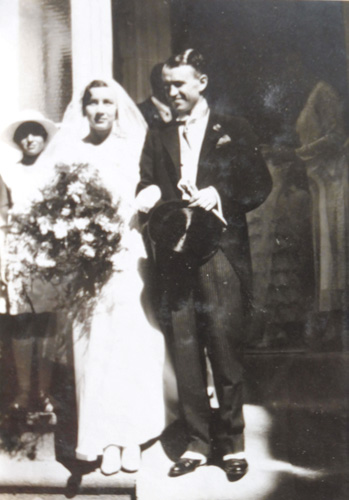
Wedding of Helen Edith Turrell to John Vivian (Jack) O’Carroll, Bornova.
